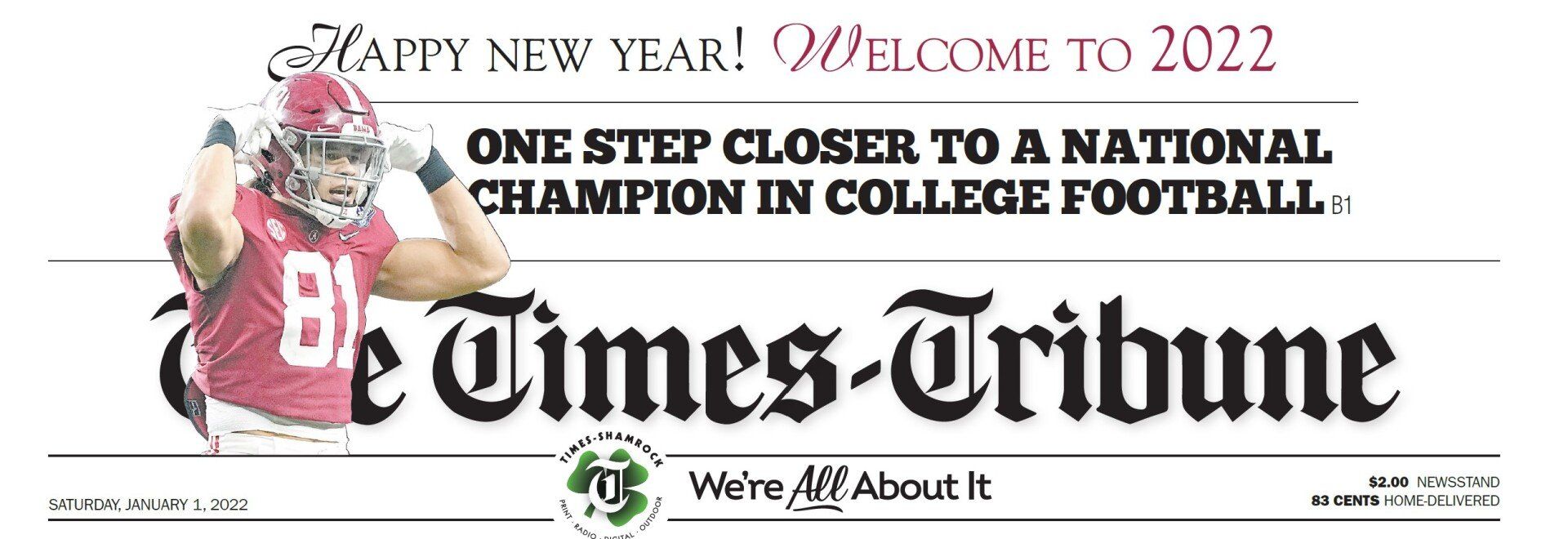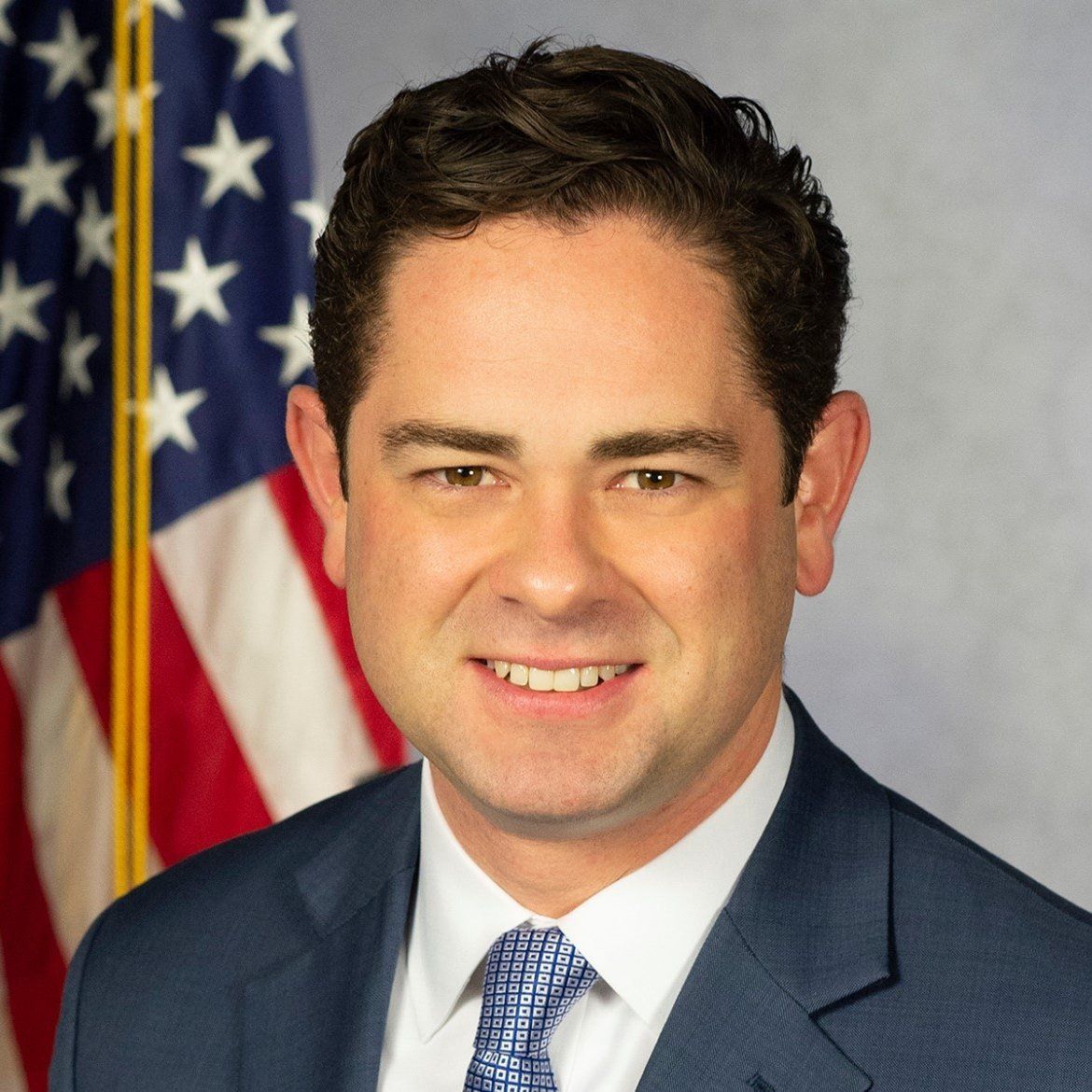New Year's Day Times Tribune: "Legislators Favor New Federal Bank for Infrastructure"

This is a subtitle for your new post
On the front page in the first issue of the New Year, Scranton's Times-Tribune highlighted "the bigger bang". That was the reference to the Pennsylvania state legislators who support the $5 trillion, 25 million jobs creating National Infrastructure Bank. Various prominent elected officials were highlighted in the article, which you can read below.


Pennsylvania State Reps Kyle Mullins (left) and Eddie Day Pashinski
The article, entitled in the online version "Legislators favor new federal bank solely for road, bridge and other infrastructure upgrades",
was written by Borys Krawczeniuk, and the text is as follows:
Congress just passed President Joe Biden’s $1.2 trillion bill aimed at upgrading the nation’s road, bridge, airport, railroad and internet systems.
Local state and federal legislators don’t think that’s enough and advocate a bigger bang.
State Rep. Kyle Mullins, D-112, Blakely, and Rep. Eddie Day Pashinski, D-121, Wilkes-Barre, and U.S. Rep. Matt
Cartwright, D-8, Moosic, and Rep. Dan Meuser, R-9, Dallas, want Congress to create a National Infrastructure Bank.
Mullins and Pashinski want the bank to acquire up to $5 trillion in bonds over a 10-year period to supercharge the
nation’s rebuild.
“This would be an augmentation and would not require any federal dollars,” Mullins said. “This is essentially putting
our nation’s debt to work.”
Under the plan, the bank would be funded by existing U.S. Department of Treasury bonds bought from the private
sector in exchange for preferred stock in the bank. The stock would come with a guarantee annual dividends of 2%
more than the bond rates. The bank would have a federal charter and would loan money to local and state
governments and utilities for infrastructure projects, which would repay the loans over time.
The Coalition for a National Infrastructure Bank argues the $5 trillion would cover all of the $2.6 trillion funding gap
that the American Society of Civil Engineers has identified between the nation’s immediate infrastructure needs
and available funding.
“There was a little hesitation because everybody was working on the Biden plan. We understand that. This is
different than the Biden plan,” Pashinski said. “This is the private dollars, there’s no tax dollars or whatsoever ...
You’re looking at 25 million high quality jobs.”
The idea has kicked around for at least 15 years. Year after year, one congressman or another has introduced a bill
only to see it go nowhere.
Former Pennsylvania Gov. Ed Rendell heavily promoted the idea when he co-founded the Building America’s
Future Educational Fund with former California Gov. Arnold Schwarzenegger and former New York City Mayor
Michael Bloomberg. A smaller version made it into President Barack Obama’s stimulus package after the Great
Recession of 2008, but the authorization for that program expired, Rendell said.
Rendell advocated allowing states to toll highways and creating the infrastructure bank in the infrastructure bill
that passed. Neither happened. The idea has worked well in Europe, he said.
“I think the reason they didn’t want to do it is when you do something like that the smaller states and the western
states are immediately (suspicious) that this is just a way to give the eastern states and the bigger states large
chunks of money,” Rendell said. “It’s not true. You could do a set-aside. You do a 20% set-aside that must go to
states with population less than a (certain amount).”
Meuser introduced a different bill to start the Infrastructure Bank for America. Meuser’s bill would set aside at least
7% of the loans for rural areas.
“It exists in China, which actually attracts American institutional investment. It’s a good idea as long as it’s privately
run and funded with all appropriate oversight,” he said.
Cartwright also likes the idea, noting “”I’ve been a co-sponsor (of yet another bill) since July 2013.”
So far, the idea may have gone nowhere because some on Wall Street oppose it, including trade groups Municipal
Bonds for America, the Bond Dealers of America and the American Securities Association.
“By nationalizing federal investment in local infrastructure via an infrastructure bank, the provision would minimize
a centuries-long partnership among federal, state and local governments in infrastructure investment,” said the
Bond Dealers and Municipal Bonds group said in a joint statement, according to the publication, The Bond Buyer.
